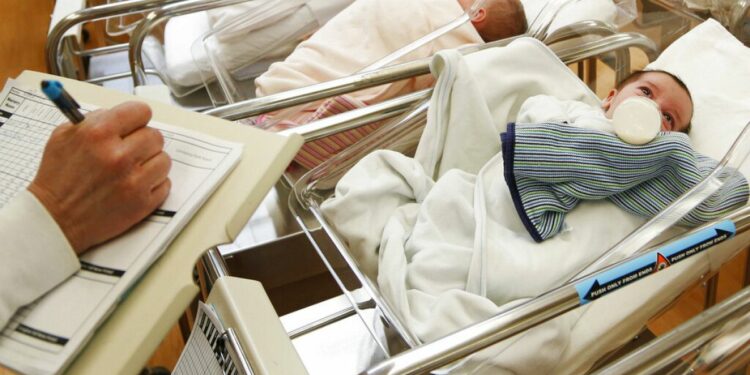A case in point is Agios Efstratios, a small island in the north Aegean with no more than 250 inhabitants.
‘’There are no girls on the island. Or at least there are no more than 2 women under 30 years old,” said Kostas Sinanis, the local mayor.
“The same goes for the boys. We need to search for the incentives that will bring the young boys and girls back to the island, the place where they were born and raised, to create their families. Unfortunately, we had one birth last year and another one three years ago.”
In 2022, Greece recorded its lowest number of births in 92 years — and this year, the country posted the second-largest population decrease in the EU.
Greece’s fertility rate is among the continent’s lowest at 1.3 babies per woman, well below the 2.5 needed for population growth. Economic forecasts indicate its workforce will fall by 50% by 2100, with its output shrinking by 31% over the same period.
Michalis Vlastarakis of the Eurobank Group warned that if nothing is done, disaster will follow.
‘’If we don’t do something, in about 25 years from now, in two decades, one-third of the population will be over 65 years old, and in 2050 we will be 2.5 million less”, said Vlastakaris.
“You don’t need to have studied finance to understand the consequences of these projections on economic indicators, GDP, the workforce, the insurance system, pensions, health, and education, even since there’re going to be fewer schools.’’
Greece’s family ministry said a few days ago that it plans to spend €20 billion through 2035 on incentives to halt the decline, including cash benefits and tax breaks.
The government already spends around €1 billion a year on pro-child measures — but like other European countries doing the same, it has seen little impact.
Source link : https://www.euronews.com/my-europe/2024/10/09/greeces-low-birth-rate-raises-spectre-of-population-collapse-in-aegean-islands
Author :
Publish date : 2024-10-09 15:12:00
Copyright for syndicated content belongs to the linked Source.


